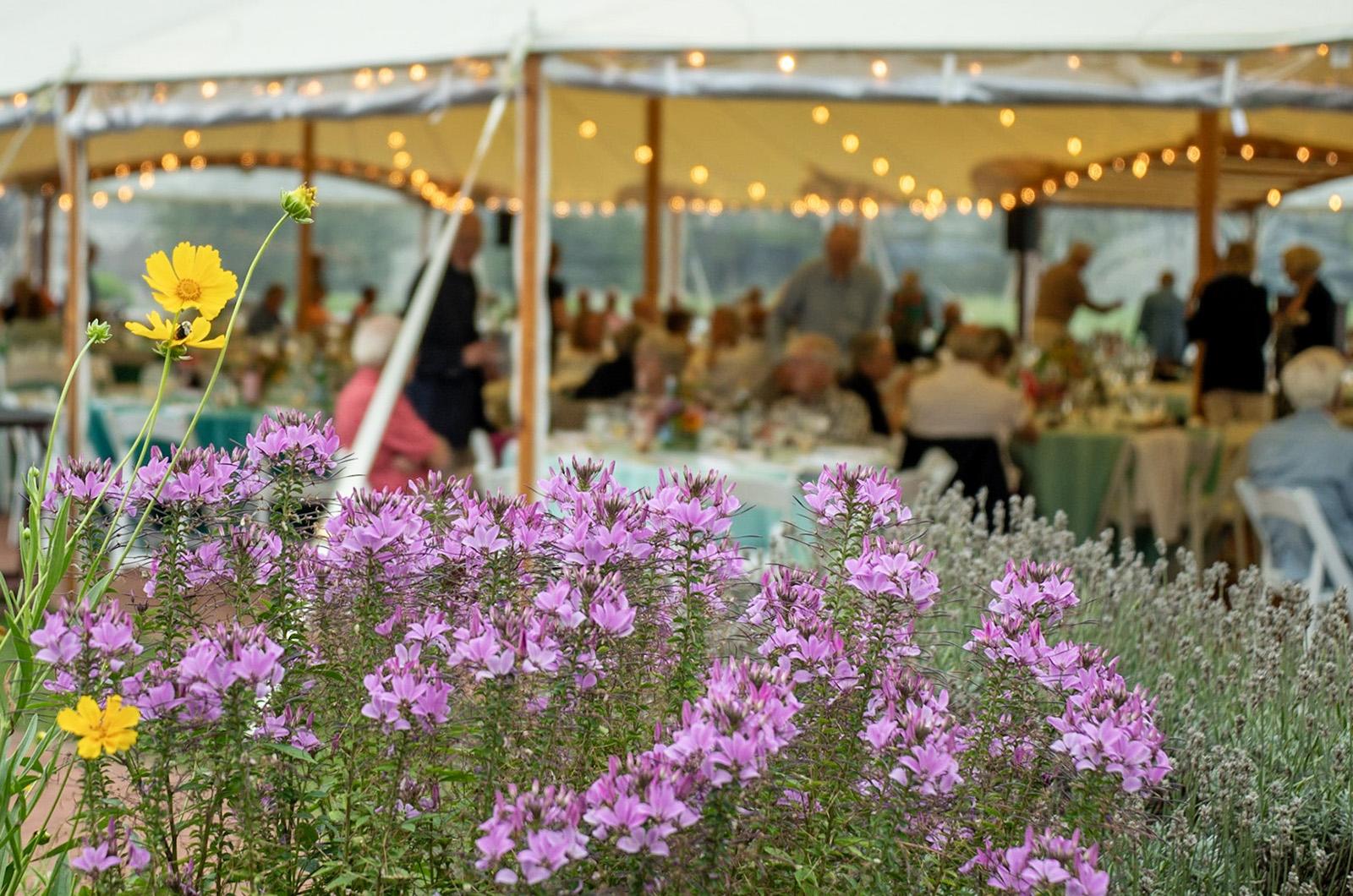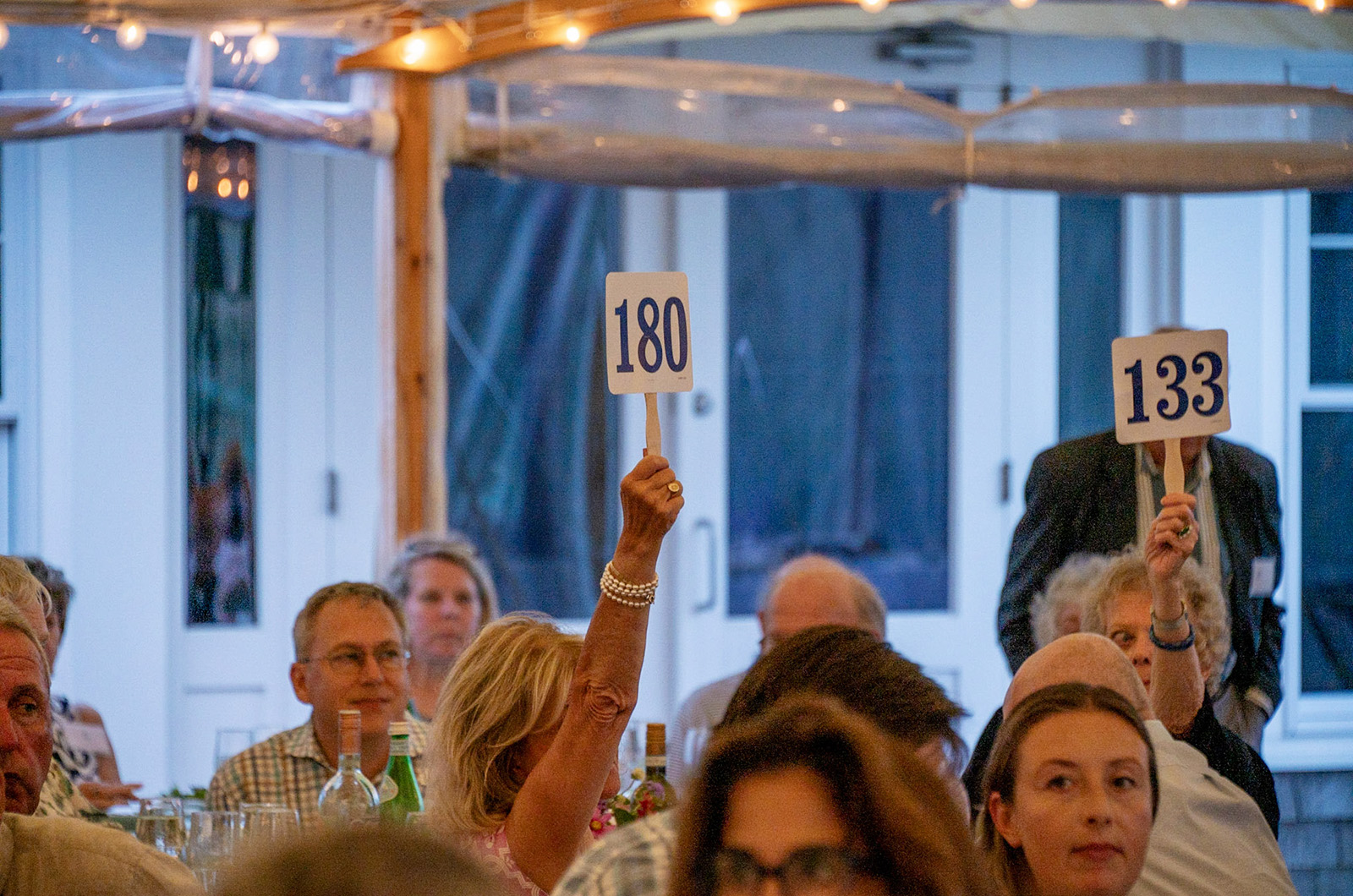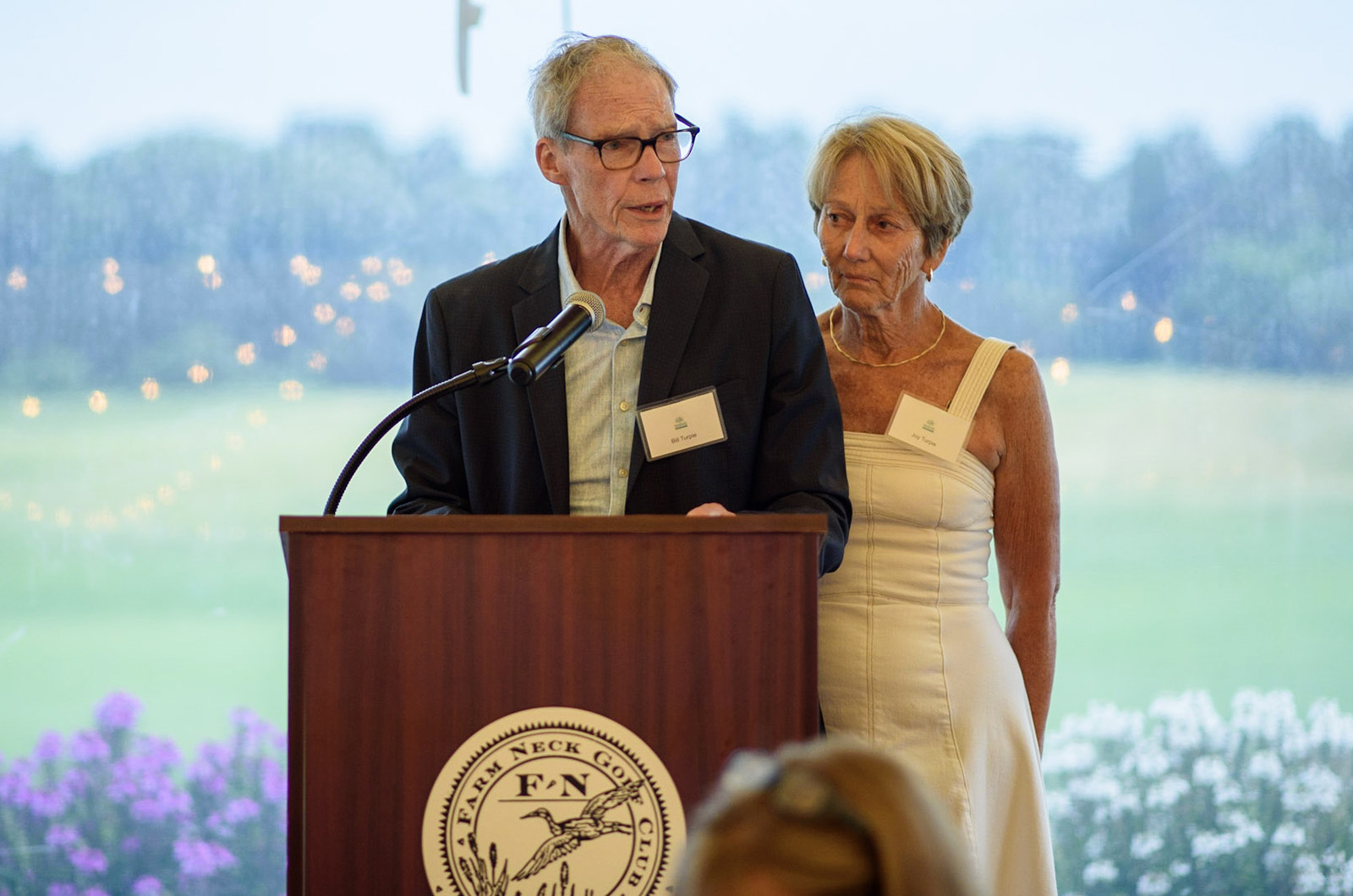In 1981, a group of women in their 80s pulled a trailer behind the Martha’s Vineyard Hospital and began the Island’s first hospice organization. Now 42 years later, Hospice & Palliative Care of Martha’s Vineyard is newly Medicare certified, allowing its reach to stretch further across the Island than ever before.
“This is a major accomplishment,” said executive director Cathy Wozniak during an interview at the organization’s Summer Soirée Monday evening, held at Farm Neck Golf Club.
Ms. Wozniak started with Hospice & Palliative Care of Martha’s Vineyard two years ago, brought on to help with the Medicare certification, which it received in November of 2022.
“We can now serve anyone on-Island and fulfill our mission of serving absolutely anyone and everyone who needs us, gratis,” she said.
The Summer Soirée is the organization’s largest annual fundraiser, raising more than $250,000 this year through ticket sales and a silent and live auction. The final number will be calculated once the online auction closes on August 11 and final donations are accounted for.
The fundraiser was supported by 47 sponsors and catered by J. Jaime Hamlin & Sons. It included donated appetizers, drinks and food from Cronig’s, Whippoorwill and Slough farms.
Funds raised will contribute to the organization’s Legacy Compassion Campaign, which launched earlier this summer. The campaign aims to support the organization’s growing services as a result of its Medicare certification, bringing in funds to expand its physical space for clinical and counseling services as well as for staff housing.
Due to the national shortage of nurses, the organization often contracts traveling nurses from off-Island to fill its growing needs but housing remains a constant challenge on the Island.
“The Medicare certification, while huge for us, is a massive investment because now our infrastructure has to grow with our services,” Ms. Wozniak said. “We need housing for our qualified staff in addition to space for our services and securing funding so we can be here for another 42 years.”
The campaign does not have a set financial goal yet, but board volunteer representative Diane Nicholls said it will be in the millions.
“It is so important to have this service on the Island because people want to be home at the end of their lives,” Ms. Nicholls said. “Our support is important for the entire family, before and long after their loved one is gone.”
In addition to its at-home hospice services, the organization received a grant in June for a palliative care clinic at the hospital. As of now, the clinic is once-a-month, bringing nurses to the hospital to care for patients who otherwise might not have access. Its first clinic, which took place in July, saw 14 patients. In the future, the organization aims to create a permanent clinic.
“There are 90 million people in the United States with a serious advanced illness who don’t have the help they need,” Ms. Wozniak said. “We want to try to reach those patients and then ideally set them up to transition from palliative care to hospice. People usually don’t call for hospice soon enough.”
Ms. Wozniak explained that many people who reach out for hospice care do so during the final days of their loved one’s life. She said that at this point, there is little the organization can do to help.
“The goal is giving a person the highest quality of life possible in the time they have left,” she said. “For a lot of people with advanced illnesses, treatment like chemo, for example, might extend their life a bit but that life is going to be miserable. We want to help patients live every day they can to the fullest, happiest and most comfortable possible.”
The organization’s medical director is board certified emergency physician Lisa Vieira-Salvatore, who said that part of the goal for the palliative care clinic is to train primary care physicians about when to direct patients to hospice care.
She said that a doctor’s permission to end treatment and accept the end of life can be incredibly meaningful for a patient who might be tired of battling an unbeatable illness.
“Families should never feel guilty about transitioning their loved one to hospice,” Dr. Vieira-Salvatore said. “It can be the unselfish thing.”
The organization’s bereavement counseling service connects patients with social workers and counselors who work together to move through grief, whether or not a product of hospice.
Joy and Bill Turpie, whose son died from alcohol and drug addiction, spoke at the Summer Soirée about their experience with the organization’s counseling services.
“We were able to process our grief as it was happening, things didn’t build up, we avoided misunderstandings between us,” Mr. Turpie said. “[Our counselor] helped us to know how to continue living in the midst of our grief. She helped us know how to continue also, and recognize that it was okay to go on with our lives. That life was not pure joy, nor pure loss.”
Chantale Patterson said she joined the staff of Hospice & Palliative Care of Martha’s Vineyard after attending the soiree in 2017. Overcome with admiration for the breadth of the organization’s services and the commitment of its staff and volunteers, Ms. Patterson, a nurse by trade, became its clinical director.
“Even just with your presence, you can make a difference in someone’s life,” she said. “You don’t have to fix everything, but when I go home at the end of each day, I can say I did a good thing.”









Comments (3)
Comments
Comment policy »